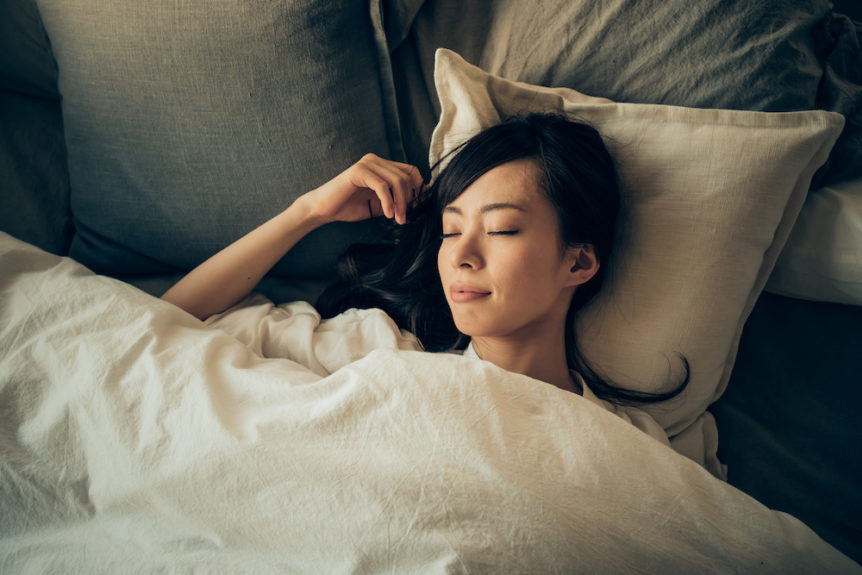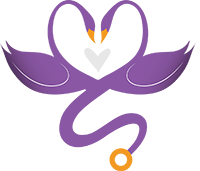One of the most common concerns I hear in my practice is, “I can’t sleep” (and boy have I been there myself!). Sleep deprivation is a real problem in our country. In fact, the World Health Organization has declared a sleep loss epidemic in industrialized nations. Much of this is due to the fast paced lives that we lead. We rarely give our bodies the necessary time or proper relaxation needed to get sufficient sleep. This can lead to a host of issues ranging from depression and anxiety to weight gain and neurodegenerative disorders. Sleep deprivation is a real health problem, not just an inconvenience that we can cover up with a turbo shot in our coffee.
Four facts about sleep
If you’re interested in learning more about sleep, I highly recommend “Why We Sleep” by Matthew Walker, PhD. Dr Walker has been a sleep researcher for over 20 years and his book beautifully outlines the importance of sleep, the consequences of inadequate sleep, and the best methods for correcting a broken sleep cycle. Here are a few of my favorite sleep facts from his book:
- Insufficient sleep raises our hunger hormone, while suppressing a different hormone that tells us when we are full. This explains why a sleepless night often leads to excess snacking the next day.
- Being a “morning person” or a “night owl” is actually part of our biochemistry. For most of us, our circadian rhythm is genetically predetermined. This is an evolutionary defense mechanism programmed to protect our species. If we all slept during the same eight hour window, we’d all be at risk of attack by predators for the duration of that window. But by staggering sleep schedules, our tribal ancestors were able to sleep in shifts, allowing for some members to be awake and on alert when others slept.
- Melatonin is not the “sleep aid” that you might think it is. Yes, it is a powerful and important hormone that our brain makes in the evening hours, but it isn’t meant to knock us out and “put us to sleep”, per se. Instead, its function is to set the stage for sleep so that other brain regions can then initiate sleep. Dr Walker compares melatonin to the timing official of a 100-meter race. The timing official calls all of the runners (sleep) to their marks, and gets them ready to take off, but he doesn’t actually participate in the race. Because melatonin plays a bigger role in sleep timing than sleep generation, it can be more useful for things like jet lag or disrupted circadian rhythms than insomnia. Did you know that melatonin is a powerful antioxidant? If that’s not a potent example of the importance of sleep, I don’t know what is!
- A study conducted by NASA in the 1980s exposed spiders to four different drugs – caffeine, marijuana, LSD, and speed – then observed their ability to construct their webs. The spiders exposed to caffeine were incapable of producing anything that looked like a normal or logical web, even compared to the webs created by the spiders exposed to the other drugs.
How to get better sleep
Getting good sleep is possible, and is essential. Here are some pointers for getting better ZZZs:
- Allow yourself enough time to sleep. You can’t get eight hours of sleep if you are only in bed for six. Wrap up your activities with enough time to be physically in bed for eight or more hours.
- Avoid caffeine after noon, and avoid it altogether if your sleep is really disrupted. Caffeine has a half-life of about five to seven hours, meaning that five to seven hours after consuming caffeine, only half of it has left your body. Five to seven hours after that, half of the half has been removed, and so on. So even many hours after your morning cup of joe, you may still be under the influence of caffeine. Some people are more efficient at removing caffeine from their bodies than others, based on genetics.
- Give yourself enough time to wind-down. Don’t expect to jump from watching a lively, action-packed TV show to falling into a sound sleep. We need time to shift from our day-to-day “fight or flight” mode into a calm, restorative “rest and repair” mode. Ease this transition by getting off of all screens 60 minutes before bed and doing something calming like reading, meditating, journaling, or taking a warm bath.
- Keep the temperature in your room cool. Our core body temperature drops by about two degrees Fahrenheit several hours after we fall asleep, so sleeping in a hot bedroom makes this harder and may interfere with proper sleep.
- Exercise before 6pm to avoid the natural cortisol spike that occurs with exercise and can interfere with normal sleep physiology.
- Go to bed and wake up at roughly the same time each day. Our bodies love rhythm.
- Supplement wisely. B vitamins can be stimulating and may be interrupting sleep if you take them too close to bed. The same can be said about certain herbs, so work with your practitioner to make sure that none of your supplements (or medications) are a factor. Several supplements can help with sleep – magnesium, L-theanine, taurine, and 5-HTP are a few. Remember that melatonin can be helpful, but may be better for circadian rhythm resetting and jet lag than for actual sleep initiation. As always, work with a practitioner well-versed in nutritional supplements before starting any new product, especially for something as important as sleep!
Wishing you sweet, pumpkin-spiced dreams!



